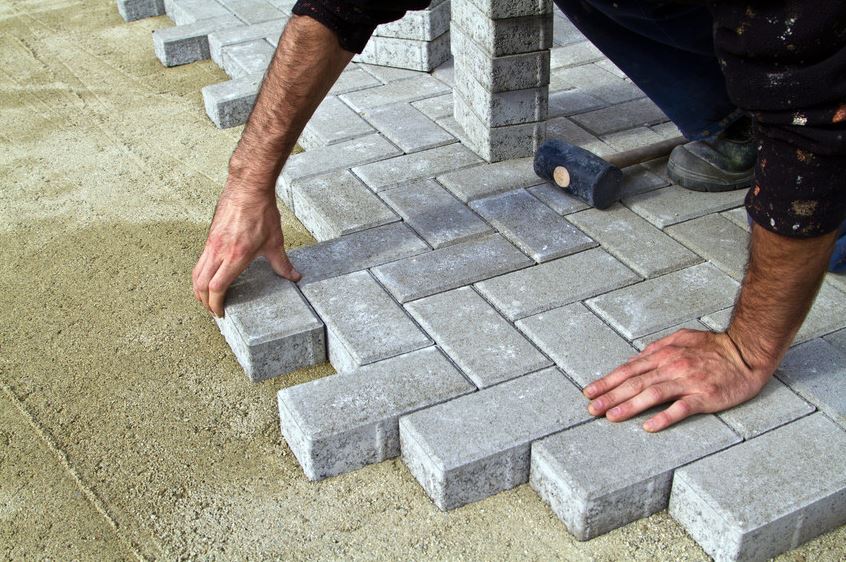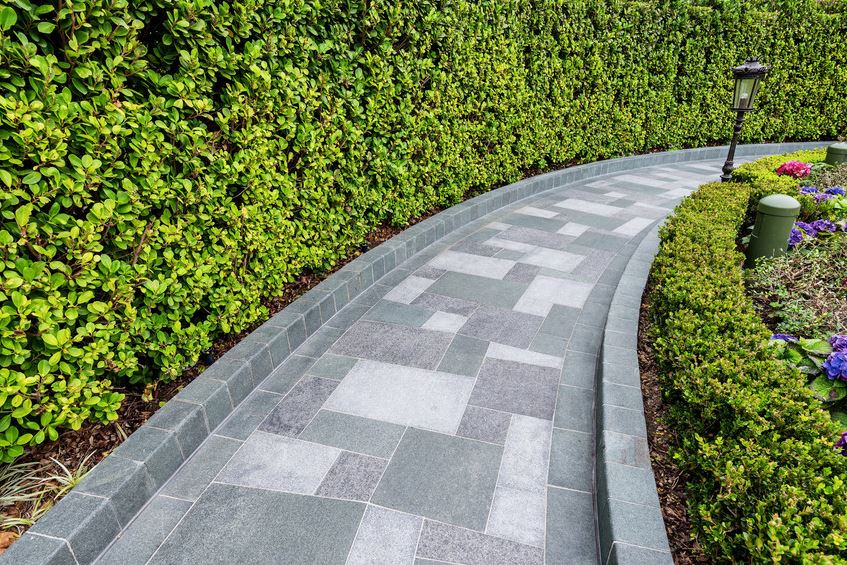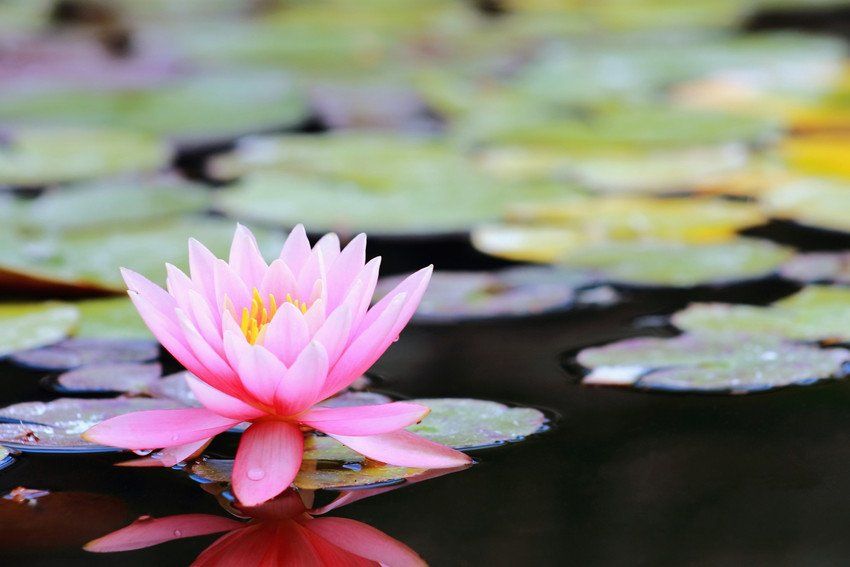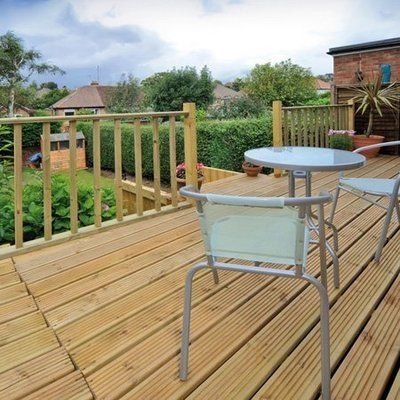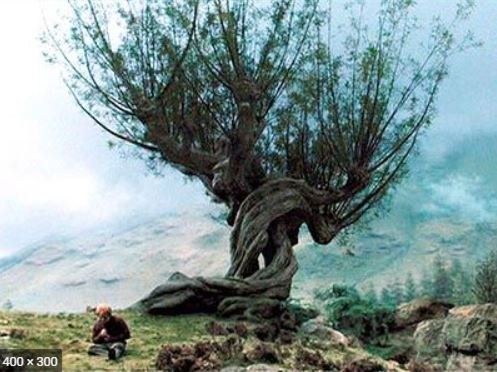What is Garden Mulch and What is it Used For?
- By Paul Day Tree Surgery
- •
- 06 Dec, 2019
- •
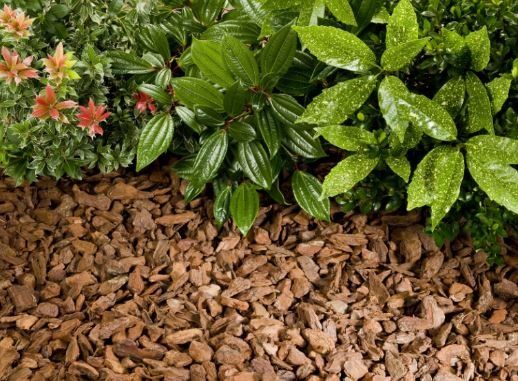
Gardens can make a world of difference to your home. As well as being a great place for you, your family or your housemates to hang out in the summer and throw garden parties, they can also add a significant amount of value to the price of your property.
Whether you want to install an outside dining area, build a stylish shed, include a gazeebo or bring more living space outdoors, a well-maintained garden can add as much as 20% to the price of your home. This can equate to tens of thousands of pounds added to the price of your property, which you certainly won’t want to miss out on!
If you’re a keen gardener with green fingers, there are a number of excellent additions you could choose to increase the value of your property and make your garden a more welcoming place to be. Be sure to include plenty of outdoor furniture and balance the design of your outdoor space to make it as appealing as possible. It’s important not to overcrowd the space and think of it as another room within the home. You wouldn’t leave rubbish lying around your living room, so don’t do the same to your garden. Introducing electric light can also be another great way to brighten up your garden and make it more appealing.
More important than any of this is ensuring that your garden is well-maintained and attractive. One sure-fire way to achieve this is to utilise garden mulch, but what exactly is it and what does it do?
From Garden Bark to Compost, Different Types of Mulch and How They’re Used
Mulch is a material which is laid on top of soil as a covering and retains moisture, keeps the soil at a cool temperature, curtails the growth of weeds and makes garden beds more appealing. This material can also help to improve the fertility of the soil and improve its organic content.
The moister the mulch, the more nutrients can pass through to the soil, whereas dryer mulch will pass fewer nutrients to the soil but decompose more slowly. Each different type of mulch has its own singular use; here we provide a bit more info on each.
Bark mulch is one of the most common types of mulch used in your garden. This material is best used around the base of trees and shrubs as well as areas where there will be limited digging. For example, around walkways, fountains and perimeter garden beds.
If you are going to be changing an area and adding more plants, it may be best to choose another type of mulch. Bark lasts for a long time, but it doesn’t mix well into soil and can be a pain to continuously move if you’re going to be consistently adding more vegetation to a particular area.
Compost is one of the most versatile types of mulch you can use. As well as being able to make it yourself using food scraps and grass, compost will mix into the soil effectively and can insulate plants as well as provide a boost to their nutritional content. As long as the areas you want to use this mulch on are weed-free, you can use compost anywhere in the garden.
Grass clippings have very high water content and so decompose much quicker than other types of mulch. This can cause foul smells to linger in your garden, so it’s advisable to use this type of mulch sparingly and keep it to the more remote areas of your garden. If you are looking to prevent weeds from growing, however, grass clippings are an excellent choice.
One of the most cost-effective ways to mulch your garden using grass clippings is to mow your lawn with a specialised mulching mower and then leave the clippings on the lawn or place them in a bag. If you want to use your own grass clippings in this way, make sure that you haven’t used a weed killer recently or this can cause damage to your flowers and vegetables. Keeping grass clippings from your lawn is a great way to save money and reduce waste.
Newspaper mulch is gaining popularity nowadays, somewhat surprisingly. As the vast majority of newspaper printers now use organic inc for their pages, this means that this type of mulch shouldn’t negatively impact your plant life. Newspaper paper has excellent moisture retention capabilities, can prevent weeds from thriving and is excellent at controlling the temperature of soil.
When using newspaper as mulch, lay down around six sheets amongst plants and then spread a bit of water on top to moisten them. Follow this with another layer of organic mulch like compost to further protect plants against the growth of weeds.
Shredded leaves are an excellent mulch and free to use all over your garden. This material can be used in any area of the garden, but some may think that it is unsightly. However, if shredded leaves are spread across the garden in the spring before the majority of growth takes place, the leaves will blend in with the rest of the garden in a relatively short time. If you want to mulch your vegetable patch, it’s worth spreading it across the area during the autumn period as it will decompose across winter ready for spring.
Finally, straw is another popular mulch which is used for vegetable gardens. Straw and hay can also be used to stop soil from ricocheting up onto plant leaves or garden paths and spreading soil diseases. Straw decomposes at a very slow rate and, therefore, will last for the duration of the growing season and will also attract beneficial insects which help to keep other pests in check. Straw is also easy to work into the soil, so makes for light work when planting a new crop.
The Benefits of Using Mulch For Your Garden Maintenance
In general, using mulch has a wide variety of benefits for your garden. As discussed earlier, mulch will allow you to retain as much of the moisture in the soil as possible. This helps to cultivate and encourage growth within your garden naturally without having to water it quite as much. The better moisture in your soil, the healthier your plants and vegetables will be.
Using organic mulches - like the ones listed above - are always recommended over synthetic mulches as they will contribute to the overall health of your soil as the material breaks down. Although synthetic mulch will not have to be replaced, they do not pass nutrients down through the soil.
Mulch also reduces the impact of the winter months on your garden by locking in moisture, nutrients and better insulating your plants against the cold weather. This controls winter injury and will also control the growth of weeds all year round.
Paul Day Tree Specialists: Expert Tree Surgery and Landscaping Services in Sheffield
If you’re looking for a tree care specialist in Sheffield, look no further than Paul Day. Our professional tree surgeons can provide a wide range of landscaping services, including hedge maintenance, paving, decking and fence installation.
As local gardeners, landscapers and tree surgeons, we’ve been working with local residents for many years and have helped countless people in Sheffield, Rotherham, Worksop and the surrounding area keep their garden in ship shape.
When looking for garden mulch in the area, Paul Day should be your choice. We can supply chippings and logs for any landscaping project as well as mulch to retain moisture in your garden soil. Whatever your requirements are, we can help.
To find out more about our services, please feel free to contact us today. You can call us on either 01 909 519 675 or 07 909 743 488 and email us at paul.daycountryside@btinternet.com.
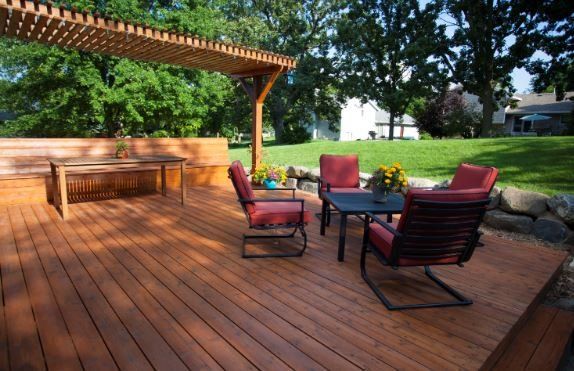
Spending time in the garden has been proven to provide a range of mental health benefits. From improving the connection we have with the world to reducing stress, gardening can make us happier, healthier and more fulfilled people. Having the perfect garden to unwind in only helps to improve these benefits and, as the summer arrives, working with local gardeners can ensure your outdoor space is summer-ready.
From large-scale projects, like landscaping and patio installations, to more generalised maintenance, local gardeners can breath new life into your outdoor area for the ensuing period of parties and entertaining. To give you some inspiration, we’ve provided a few tips on how to create the perfect summer-ready garden.
Have Local Gardeners Perform Landscaping and Garden Improvements
When summer begins to peek over the horizon, it can inspire us to change our homes to accommodate living outdoors. This process may require some improvement in your garden, but investing in the below additions can create a much more habitable environment.
Paving your garden is an excellent way to create an entertainment area for the summer. If you’re lucky enough to have a large outdoor space, you can section off an area dedicated to dining and parties.
Similarly, paving is a great way to section off other areas of the garden and create a ‘zonal’ space. Using paving intelligently, local gardeners can dissect areas of your garden for different purposes. For example, you could install paving as a perimeter to your flower bed, for entertainment space and for dining.
Similarly to paving, a decked area will create a more habitable environment for friends and family to dine outdoors. By installing a decked area at the top of your garden, you can create the perfect space to utilise for summer parties and gatherings.
Local Gardeners Can Improve The Privacy of Your Garden For Summer Parties With Fencing
Creating a new entertainment space in your garden is all well and good. However, you may also need to improve the privacy of your garden at the same time. Local gardeners can provide quality fencing products to ensure that you have the privacy you want.
Particularly if you have a young family and live in a built-up area, it’s important to have adequate security. Every family wants to be able to enjoy the summer in their garden without the unease of limited privacy measures. From timber fences to bespoke solutions, there are plenty of options which ensure your garden is summer-ready.
Employ Local Gardeners To Prune and Thin Trees To Allow More Sun In
As summer approaches, your trees and bushes will begin to become more unruly. If left to their own devices, the plant life in your garden may become obstructive and can even hinder the growth of other plants. That’s why it’s always a good idea to contact local gardeners to prune and thin your trees before they get too difficult to manage.
By pruning your plants, bushes, hedges and trees in the lead up to and during summer, you’ll facilitate better growth, improve the aesthetics of your garden and increase the sunlight streaming into your outdoor space.
As well as pruning some of the larger trees in your garden, hedges and smaller bushes can also be trimmed back. Having your hedges trimmed by local gardeners will ensure they remain healthy and neat. Having a well-maintained hedge during the summer can even act as a natural alternative to a perimeter fence and can improve the biodiversity of your garden.
Prepare Your Vegetable Patch and Fruit Trees
One of the many benefits of having a garden is the ability to grow your own produce. However, doing so does require some maintenance work.
If you have a fruit tree growing in your garden, the timing of pruning can greatly impact the quality and quantity of your crop. Particularly if your fruit tree is still in its infancy, it’s important to help it grow thick branches and canopies by pruning. The best time to prune fruit trees is in early spring before any significant budding. If your fruit trees are pruned properly in the first few years, they will provide much better fruit in higher quantities.
As well as preparing your trees for fruiting, the lead up to summer can also be spent preparing your vegetable patch. The first step in the process should be preparing your soil for planting. Loosen the soil, add compost, level the soil and water it adequately.
In the spring, plants like tomatoes and peppers should be incubated indoors whilst it’s still chilly. These can be moved outside once it gets hotter. However, you can begin planting vegetables like potatoes and onions outdoors straight away. When the summer does arrive, you’ll have a healthy and happy crop ready to eat.
Some General Upkeep To Consider
As well as some of the significant improvements covered here, there is also some more generalised upkeep you can enact in the lead-up to summer.
Weeding isn’t one of the most well-loved gardening projects in the world. However, it’s a necessary evil every gardener will have to go through to ensure their garden remains healthy. The lead up to summer is the best time to tackle this problem. During spring, remove any weeds from the garden and from in between the cracks in your paving. By de-weeding, you can ensure that your plants, rather than the weeds, consume the nutrients in the soil.
At the same time as de-weeding, you should also spend some time getting rid of any pests. Using natural solutions, like crushed eggshells for slugs, you can future-proof your plant life and vegetation.
Plant Summer Plants and Tidy Flower Beds
The blossoming of flowers is one of the most satisfying experiences of summer. It signifies the changing of the seasons and begins to bring colour and warmth into your garden. During the autumn, dead leaves and twigs will have fallen down and collected in your flower beds. With summer on the horizon, now is the time to clear that up ready for summer plants. Prepare the soil of your flowerbeds, tidy the borders up and plant flowers like lilies, dahlias and others that thrive in the warmer period.
By using high-quality compost, you can greatly improve the quality of your soil and, therefore, your plants. Begin making your own compost heap months in advance to ensure it’s ready for summer. If starting during the summer, your heap should be ready for the following summer. You can then recycle much of your garden and kitchen waste to add to the compost.
Clean, Treat and Varnish Your Furniture
Finally, summer poses an opportunity to give some of your garden furniture some TLC. Dust, wash, varnish and treat your furniture to ensure it’s in the best possible condition for the summer. The spring is the best time to make these small improvements to have your garden summer-ready for friends and family.
Our Local Gardeners Provide Specialist Tree Services in Sheffield and Beyond
Do you require the services of local gardeners at your property in Sheffield and the surrounding area? If so, look no further than Paul Day Specialists. We’re experts in the industry and provide a wide range of services for both domestic and commercial clients. Whether you need a tree felling or simple hedge maintenance, we can help.
If you want to get your garden ready for the summer, with services like hedge maintenance, landscaping and pruning, one of our specialists can be on hand to help.
To find out more about our services, please feel free to contact us today. You can call us on either 01909 519 675 or 07909 743 488. Alternatively, email us at paul.daycountryside@btinternet.com.
